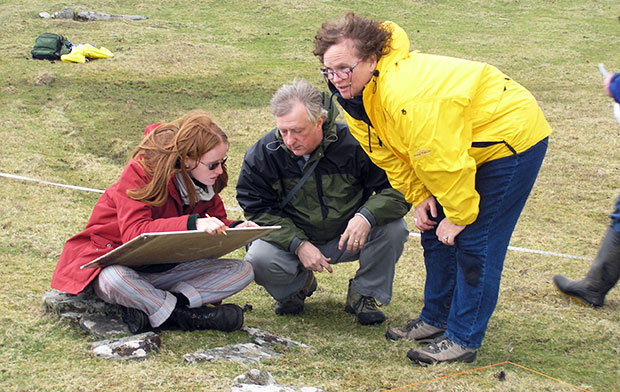Anthropology is the study of humans, past and present, drawing on knowledge from the social and biological sciences as well as the humanities and physical sciences. A central concern of anthropologists is the application of disciplinary knowledge to the solution of human problems, perspectives that anthropologists integrate into their research, teaching, and professional lives.
Research is an integral part of the UWM Anthropology Department curriculum and plays an important role in student mentoring. Undergraduates and graduate students have the opportunity to participate in research projects in sociocultural anthropology, biological/physical anthropology, archaeology, and linguistics.

As one of the best undergraduate majors for acquiring the skills necessary for a broader geographic and temporal perspective on the human experience, anthropology leads not only to obvious career trajectories for graduate school in the field, but also serves as a major rated highly by law and medical school admissions officers, who value liberal arts majors and in particular majors that broaden the perspective of their prospective students. Anthropology undergraduate degrees are in increasing demand in areas such as marketing, user interface design, consumer research, and global NGOs.
Through participation in faculty research, undergraduates and graduate students can acquire specific skills such as ethnographic research techniques (including participant observation, open-ended interviewing, statistics and archival research), biological anthropology laboratory techniques, primate observation methods, museum research and exhibit experience, training in archaeological field and laboratory techniques, and environmental and cultural resource management skills that are in demand by institutions such as companies, government agencies, and NGOs.
To obtain more information on the research of our faculty and students, please review:
- Sub-disciplinary summaries under Research
- the research statements on the Faculty and Academic Staff profile pages
- the PhD Student pages
- the list of department Dissertations and Theses, and
- the Department News page